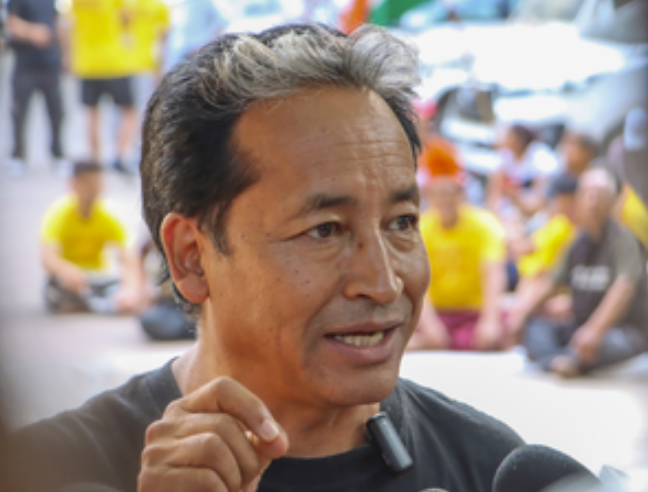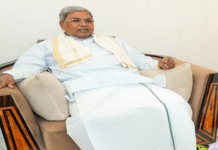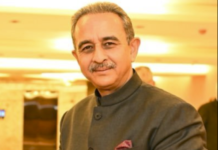LEH– Climate activist Sonam Wangchuk was arrested Friday, three days after violent protests rocked Leh town in Ladakh, leaving four people dead and dozens injured. Police allege Wangchuk incited the unrest that spiraled into one of the most serious outbreaks of violence in the region in years.
Authorities said multiple First Information Reports (FIRs) had been filed against Wangchuk, accusing him of urging protesters to turn violent during demonstrations on Sept. 24. That day, mobs clashed with security forces, torched a Central Reserve Police Force (CRPF) vehicle with personnel still inside, set fire to the offices of the Bharatiya Janata Party (BJP) and the Leh Apex Body, and damaged the vehicle of the Ladakh police chief. Security forces opened fire in response, killing four protesters and wounding about 70 others.
The violence came just hours after Wangchuk ended a two-week fast he had begun on Sept. 10, calling for Ladakh’s inclusion in India’s Sixth Schedule, full statehood, and stronger environmental protections for the fragile Himalayan ecosystem.
In the aftermath, authorities imposed a curfew in Leh and extended restrictions to Kargil. Police said they detained several agitators, including some Nepalese nationals and residents from Doda in Jammu who were injured during the clashes.
India’s Ministry of Home Affairs (MHA) issued a statement blaming Wangchuk for stoking unrest and announced the cancellation of the Foreign Contribution Regulation Act (FCRA) registration of his non-profit, the Students’ Educational and Cultural Movement of Ladakh (SECMOL). Officials accused the group of violating foreign funding laws.
Wangchuk, who won the Ramon Magsaysay Award in 2018, denied wrongdoing. Speaking to reporters, he insisted his organization had not accepted foreign contributions, but had engaged in business transactions with international organizations like the United Nations and groups from Switzerland and Italy. “They mistook it as foreign contributions. I consider it a mistake on their part, and therefore I don’t mind it. But that’s what was thought of as a foreign contribution. It is not,” he said.
The central government and Ladakh administration maintain the violence was not a spontaneous uprising but the result of outside instigators attempting to destabilize a historically peaceful border region.
Wangchuk, once an outspoken supporter of Ladakh’s 2019 transition to union territory status, has in recent years become a leading critic of the government over demands for statehood and constitutional safeguards. His arrest marks a dramatic escalation in the standoff between activists and authorities. (Source: IANS)













